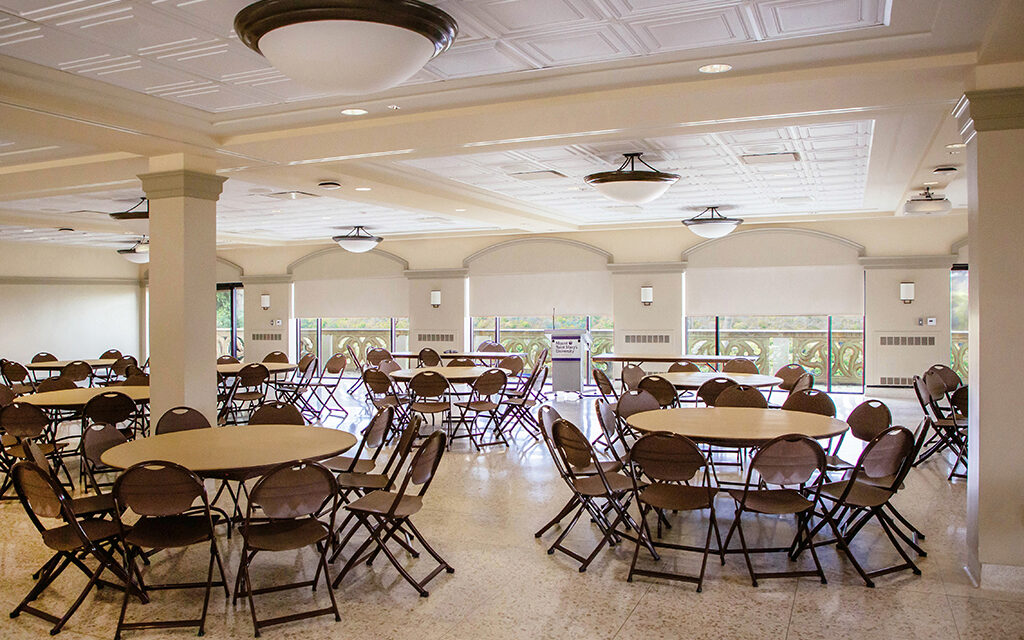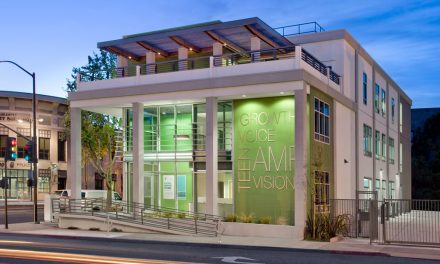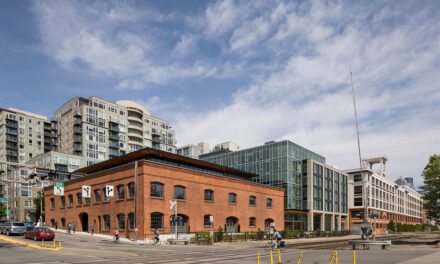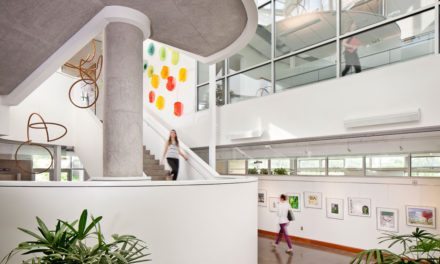The newly renovated Campus Center at Mount Saint Mary’s University’s Chalon Campus, Los Angeles, CA, a 4700 square-foot multipurpose event space, was plagued by echoey acoustics that interfered with audibility in the room. The solution turned out to be a simple replacement of the hard ceiling panels with lightweight thermoformed acoustic panels.
The Campus Center space had several lives since construction of the Humanities Building, designed by Bark & Ott and completed in 1966. The space was originally the Commuter Lounge, a Mid-Century Modern living room for students that did not live on campus and needed a place to gather between classes. As the only large meeting space on the campus without fixed seating, it later became a multi-function space used for assemblies, parties, luncheons and teas, board meetings, performances, lectures, and classes.
The room received a makeover in 2013 as part of a larger renovation project to create a more attractive and welcoming main entrance to the campus from the parking structure. The large windows were adorned with millwork arches, a supergrid of broad ceiling beams was added, and boxy fluorescent troffers were replaced with a combination of downlights and pendant fixtures. The existing flat ceiling tiles were replaced with coffered panels that complement the building’s Mission Revival architecture.
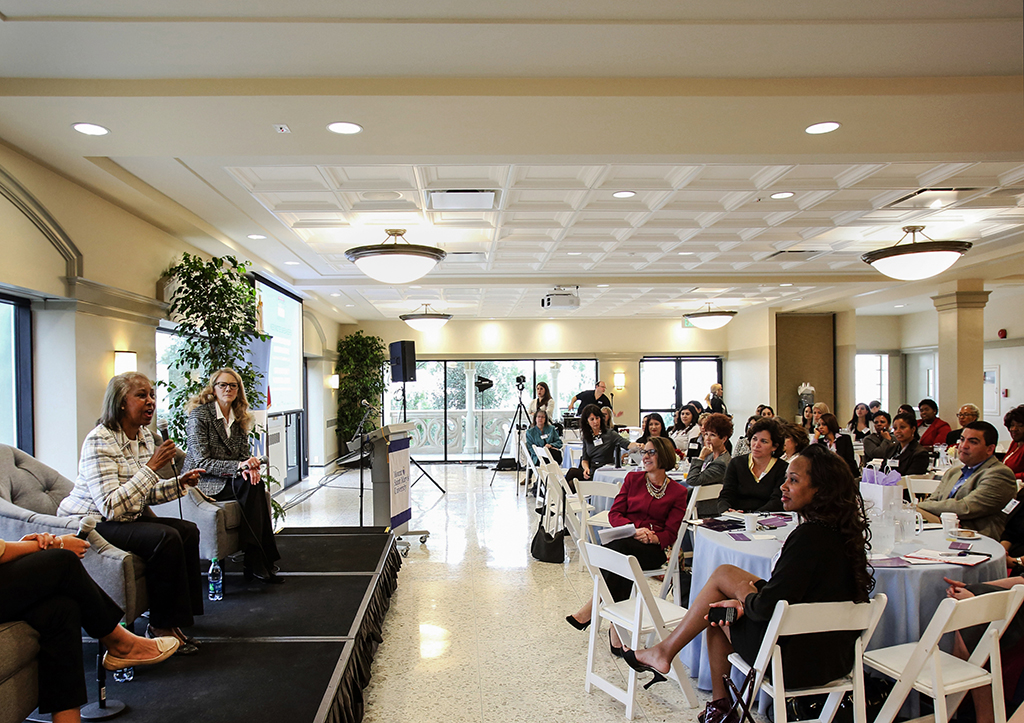
After renovation in 2013, the space was given a more traditional look, with window arches and a beam-and-coffer ceiling. However, the hard-surfaced ceiling material created unacceptable acoustics. Photo courtesy of Mount Saint Mary’s University Archives
The new ceiling panels were, according to Associate Director of Facilities Management John Deeb, “a plaster-surface architectural tile.” Coupled with a terrazzo floor, hard walls, and extensive glazing, the Campus Center had very live acoustics that made hearing difficult during many events.
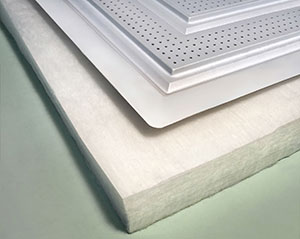
Lightweight thermoformed panels provide noise absorption by dissipating acoustic energy in the dead airspace above the ceiling, an effect that is enhanced by perforations. With the addition of Soniguard acoustic backing, it can achieve an impressive 0.85 noise reduction coefficient (NRC). Photo courtesy of Ceilume
An acoustical consultant tested the room and suggested changing the ceiling to something with better sound-absorbing properties. Deeb searched for an acoustic ceiling replacement and found that thermoformed Ceilume panels can provide a noise reduction coefficient (NRC) of 0.85. “We were lucky enough to find a style that looked like the tile that was there already, the only difference being it had pinholes and insulation backing.” Stratford, a three-dimensional panel, is perforated and backed with Ceilume’s Soniguard insulation to achieve its impressive level of sound absorption. It offered both performance and an installed price that was competitive with flat mineral fiber acoustic panels, without sacrificing aesthetics.
The new ceiling looked quite similar to the problem ceiling, but produced “a marked difference in the acoustics of the space,” recalls Deeb. “It solved 70-75% of the problem. The ceiling made a big difference.”
The coffered Stratford design adds a note of elegance and formality to the room, and provides much needed eye relief in the wide, low-ceiling space. Stratford is one of 40 ceiling patterns, both traditional and contemporary, that are available in 13 colors and faux wood and metallic finishes, plus three light-transmitting options for creating luminous ceilings. Thermoformed panels are durable, stain resistant, washable, and do not support the growth of mold or mildew. They are also recyclable, and available with up to 98% recycled material content, making them an environmentally responsible choice for the university.
The room has been used for banquets, parties, and meetings, and is sometimes subdivided into classroom spaces. The university was even able to hold Mass there while the campus chapel was being renovated. The new ceiling supports all these activities both acoustically and aesthetically.
About Ceilume
Ceilume is the leading manufacturer of thermoformed ceiling and wall tiles and panels. The company’s roots go back to when “Mid-Century was Modern” and the pioneers of modular ceilings. The family-owned business is located in California’s wine country and occupies a historic apple-packing warehouse. With an eye on the future, Ceilume’s research and development continues to improve interior finish systems to meet changing environmental, performance, and aesthetic needs. For more information, see www.ceilume.com/pro.

